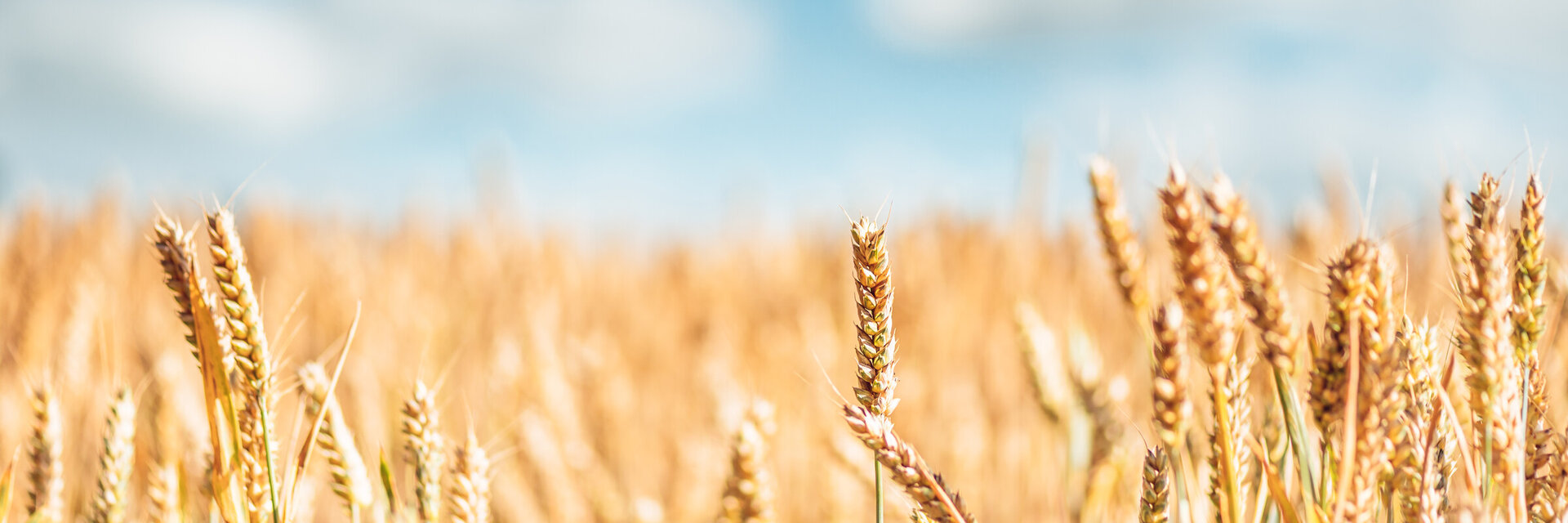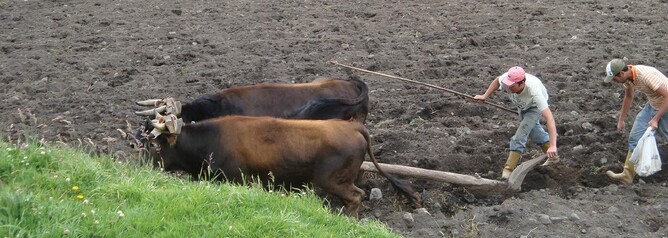It is now more than 25 years since we finally touched down in Monteria, Colombia, to commence the two-hour bus trip to Sincelejo. Although we were all dog-tired after five flights, we were all amazed at the new sights, sounds and smells that greeted and welcomed us to this very ‘different world’ that was to become our home, on and off, for the next quarter-century. There is no doubt that we live in a very favoured land, and our time in South America has taught us to appreciate our country, and it doesn’t sit too well when we hear people complaining of conditions here. It is interesting that things which came as a shock to us, in the beginning, became the way of life to which we adapted over time, so we will seek to share a few of these experiences.
The Language
I guess the first thing that we noticed in this ‘different world’ was that we understood nobody—and nobody understood a word we were saying either, so it was a relief for us to have Edward and Ruth Smith to translate for us. It was very obvious that the first huge task before us was to learn to speak Spanish, which was extremely daunting to someone who achieved a D- for trying to learn French at school! We purchased books for a nine-month course and hired a private teacher who came to our house each morning, and in the afternoon we did our homework. The endless forms of the verbs seemed an impossibility to remember, so it was a matter of accepting that we were back in kindergarten, and had to learn to talk all over again. After spending all of our lives talking without really having to think about what word to use, we suddenly found ourselves having to concentrate and think about every word, and try to decide which was the correct way to say something. When we thought that we had the verbs more or less sorted out and started to try speaking with the locals, we soon found out that the pronunciation was perhaps more important than the grammar. Thus we found ourselves acting a bit like a parrot, and trying to imitate those around us, and we were very grateful to some of the believers who were very patient with us and corrected us when necessary. The small pocket dictionary became our constant companion, and came to our aid many a time, like when we were in a shop and didn’t know or couldn’t remember what to call the certain item we were looking for.
After living four months near the Smiths, we had to move to Venezuela where we spent six weeks with the Thomsons, after which we were left to fend for ourselves. Although we thought it was tough at the time, we can now see the benefit of this, as we were forced to speak for ourselves. Just 12 months after our arrival, I was asked to give a message from the Scriptures, which I did with the help of many written notes. The believers understood the message, and were happy with my pronunciation; so from then on I had to speak each week, giving me the much-needed practice to help improve my Spanish. It took about two years before we could finally think and speak in Spanish, to avoid translating in your mind before speaking, which often caused the sentence to come out back to front. Although we feel confident speaking Spanish now, you never stop learning new words and discovering your mistakes. A smile from the audience has you wondering ‘What have I said wrong now?’, but you just have to swallow your pride and keep going.
Food & Smells
Something else that stood out for us on that first bus trip was the many smells that we encountered along the way. It was the dry time of the year, and there seemed to be rubbish everywhere, which many people were burning, giving off a very unpleasant smoke. This was something we found out that we would have to bear with for the next 25 years. Thankfully the smells weren’t all bad, as we passed several places cooking meat on a stick over a fire of coals, known as Carne en vara. Over the years we have stopped many times to enjoy not only the smell but a good feed of this delicious meat with yucca and salad. Perhaps the worst smell was the salted fish at the market, which was always in abundant supply around Easter. This was something we never could bring ourselves to eat, especially knowing it had been in the sun on the side of the road for days. Generally speaking, we found the food enjoyable, which included a variety of soups, rice, beans, salads and natural fruit juices. Corn meal is used in a variety of ways, including ground fresh corn off the cob to make cachapas. For the Venezuelan, breakfast and supper is not complete without the arepa, made with dried corn meal, and stuffed with a variety of fillings, including cheese, scrambled eggs, chicken or beef, tuna, and potato salad. (Sadly things have changed dramatically over the past 20 years, and so has their diet, as many of these food items are too expensive for the vast majority of people.)
Traffic & Driving
We also soon discovered that driving is not for the faint-hearted, and a general rule is the first to get the nose of his vehicle in gets the right of way. Besides the fact of driving on the opposite side of the road in this ‘different world’, you need eyes in the back and both sides of your head, and expect anything to happen. Night driving is really a nightmare, as not only is the road full of potholes, but people walking or sitting on the side of the road don’t seem to realise the danger of doing so. Motorbikes without lights are also a real danger, especially when there is an approaching vehicle whose driver doesn’t realise you should dim your headlights on meeting another car. Just because you have a green traffic light doesn’t mean you can drive freely through without looking out for those who ‘like their apples red’, as the saying goes. There is not so much the fear of breaking the traffic rules (which I guess do exist), but of being pulled up by an underpaid policeman wanting a bribe out of you for whatever excuse he can think of. The vast majority of people do not own a vehicle, so public transport in the form of mini-buses, cars and motorbikes is the way most people move around. (This also has been greatly affected in recent years, with the lack of fuel and the rising cost of living making it impossible to run a vehicle or travel.)
Paperwork & Appointments
Patience is something that you need truckloads of, especially when it comes to paperwork and appointments, in this ‘different world’ where time seems to have no value. Obtaining and renewing visas can mean many visits to the Immigration office—even though you have collected all the forms they have asked for, there is sure to be something missing. When you finally do have it all together, the day that you go into the office there is no system, and the computers are not working. It took me three attempts and over 12 months to finally obtain the papers for our vehicle, to have them in my name and all the previous errors corrected, as they told me they could only do one process at a time! Appointments cannot be made beforehand, but are attended to in order of arrival; so to see the dentist, doctor, motor mechanic or any other professional, can mean an early morning start or a very long wait. It is very frustrating to a mind that realises time is important, and there are many other things to be done in the day. It is common to see long lines of people waiting outside a bank or some other institution, waiting to be served or just to pay a bill.
Culture & Living
After living on an acre of land a short distance out of a small country town in Australia, it was very difficult for us to adapt to living so close to our neighbour that we can touch hands through the window. Being lovers of music, they seem to think that everyone else is too, not realising that these foreigners can’t get to sleep when the garage doors are literally vibrating from the beat and the high volume. The squealing of a pig getting its throat cut at 2 am, to be then cut up ready for sale on the side of the road at first light, didn’t occur to our neighbours that it might frighten the daylights out of us who are not used to such things, and are trying to get some sleep. We can also remember being woken up early one morning to what we thought was gunfire in the distance, but we found out later that it was something else we would have to become accustomed to in this ‘different world’. For some reason, their religious processions always involve the setting off of fireworks, as they take their man-size idols out of the church, and take them for a ride around the town. This was a stark reminder of the real reason that the Lord had called us to this world that was so different to the one we had taken so much for granted: it was to bring them the glorious Light of the gospel, which is the only solution that God has provided to deliver them from this darkness and deceit. As we evangelised, we were impressed by the way we were received into their homes, into which we could walk so freely and be offered a drink o fsome sort.
Although modern technology seems to be available in the cities, in the country areas you feel like you have taken several steps backwards in time. Especially in the Andes region, it is common to see the bullocks still being used for ploughing, and cooking is done over an open wood fire. (This is now common even in the towns, due to the lack of gas for cooking.) Although not as common in recent years, there are still many country homes built with bamboo walls and thatched roofs, which are so much cooler in the tropics. They can still be seen in what are called ‘invasion areas’ where homeless people take over some vacant land and build their first home out of these cheap materials.
Under the present circumstances and the limits on international travel, we have no idea when it will be possible to return to Venezuela, but we can see the goodness of our God, in the fact that we are in our own country during this pandemic. The dear believers who live in this ‘different world’ are doing it very tough as, on top of the critical shortage of goods and failure of all public services, they now have to face the COVID-19 pandemic without proper medical attention. A number of the Christians have been infected, and some have already died as a result of this, so we are thankful that despite the differences, we have One True and Living God that unites us together and is able to keep and care for His own.
By Paul & Daphne Chapman


